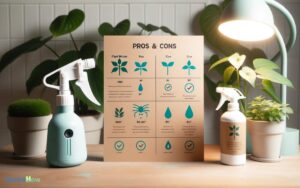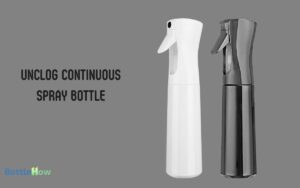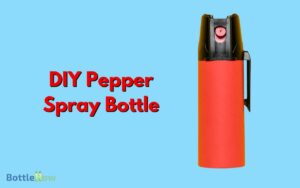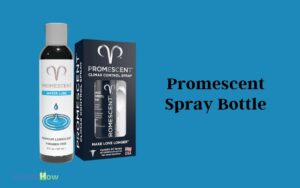What Do Tattoo Artist Use in the Spray Bottle? Find Out Here
Tattoo artists use green soap mixed with distilled water in their spray bottles to prep and clean the skin. Distilled water guarantees purity and maintains skin hydration.
Artists often add antibacterial agents like chlorhexidine or alcohol to prevent infections. For additional benefits, some might include aloe vera for healing, witch hazel for anti-inflammatory properties, or essential oils like lavender for calming effects.
Custom blends might contain these ingredients tailored for specific skin needs. Each solution helps provide a comfortable, sterile environment essential for a great tattoo experience. There’s more to learn about what goes into these precise mixtures.
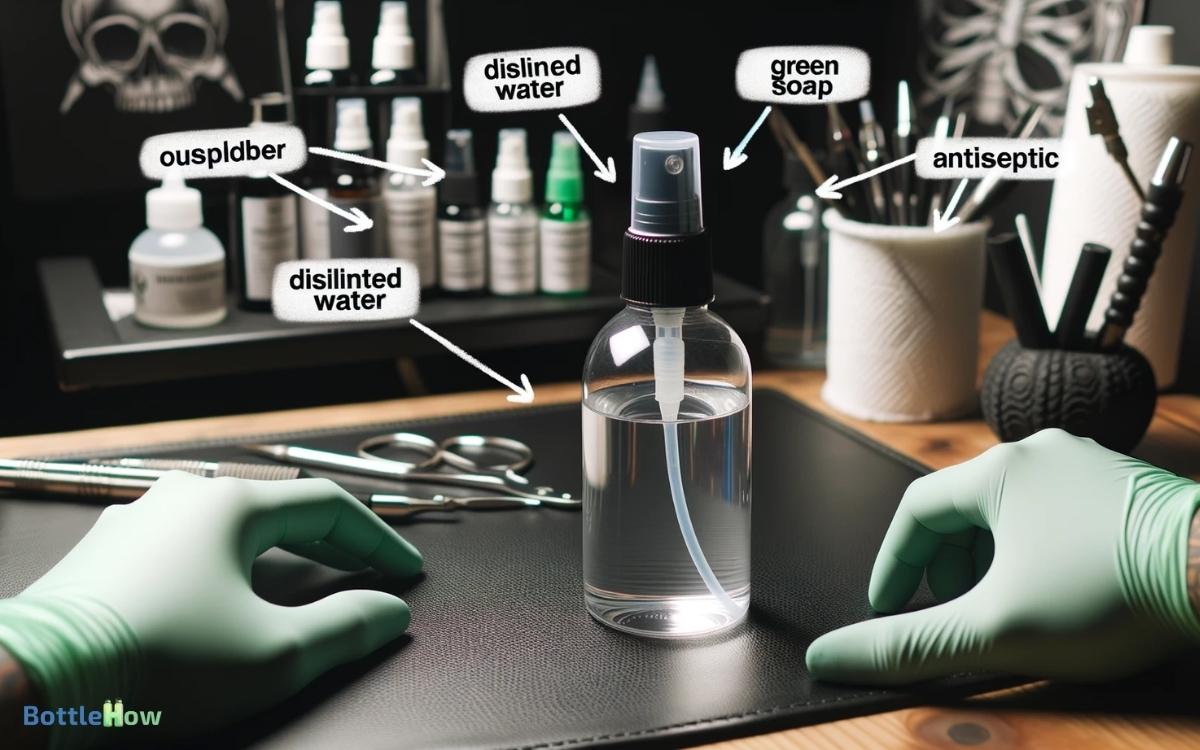
Key Takeaways
Green Soap
Green soap, a staple in any tattoo artist’s toolkit, is an antimicrobial solution essential for maintaining a sterile environment during the tattooing process.
You’ll find it indispensable for prepping the skin before you start your work. It effectively removes dirt, oil, and bacteria, guaranteeing the area is clean and ready for tattooing.
When using green soap, dilute it in a spray bottle with water to create a perfect solution. Spray it on the client’s skin and gently wipe it away with a clean, disposable cloth or paper towel.
This practice minimizes the risk of infection and ensures a smooth, clean surface for ink application. Always prioritize cleanliness to provide the safest experience for your clients.
Distilled Water
When using distilled water in your spray bottle, you guarantee maximum purity and sterility, which is essential for preventing infections. It also helps hydrate the skin effectively during the tattooing process, minimizing irritation.
Always choose distilled water to maintain a sterile environment and promote client comfort.
Purity and Sterility
In the world of professional tattooing, artists depend on distilled water to guarantee the highest standards of purity and sterility.
You must use distilled water because it’s essential from impurities, minerals, and microorganisms that could compromise the tattoo process.
Contaminants in regular tap water can lead to infections and poor healing. Always confirm your water is properly distilled, as this eliminates the risk of introducing harmful bacteria to the client’s skin.
Vital practices are important in tattooing, and this includes every liquid you use. By using distilled water, you’re upholding a commitment to safety and professionalism, ensuring your clients receive the best care possible.
Hydration During Tattooing
Tattoo artists rely on distilled water in their spray bottles to keep the skin hydrated and clean during the tattooing process.
You’ll find that distilled water is essential because it’s free from impurities and contaminants, ensuring the client’s skin remains safe and sterile.
When you spray distilled water, it helps to remove excess ink and blood, providing a clear view of the work area. It’s also vital for maintaining skin moisture, preventing it from drying out and becoming irritated.
To enhance your client’s comfort and the quality of your work, always fill your spray bottle with distilled water.
Remember, using the right tools and techniques reflects your professionalism and dedication to excellent service.
Antibacterial Agents
To guarantee client safety, you’ll often find antibacterial agents like chlorhexidine or isopropyl alcohol in the spray bottles used by tattoo artists. These ingredients meet health and safety standards, reducing the risk of infection.
Apply these solutions during the tattooing process to keep the skin clean and minimize microbial contamination.
Common Antibacterial Ingredients
You’ll often find antibacterial agents like chlorhexidine and alcohol in the spray bottles tattoo artists use to guarantee a sterile environment.
Chlorhexidine is highly effective against a broad spectrum of bacteria and is less irritating to the skin, making it a popular choice. It’s usually found in a 2% solution, diluted with water.
Alcohol, typically isopropyl alcohol, is another common ingredient due to its rapid action and ability to evaporate quickly, leaving the skin dry and ready for tattooing.
A mixture of these agents ensures that harmful microorganisms are eliminated, reducing the risk of infection.
Health and Safety Standards
Ensuring compliance with health and safety standards necessitates the use of effective antibacterial agents in every tattoo studio.
You’ve got to prioritize using professional-grade solutions to minimize infection risk. Choose products specifically designed for skin application, like those containing benzalkonium chloride or chlorhexidine. These agents are proven to kill a broad spectrum of bacteria without causing harm to the skin.
Regularly disinfect all surfaces and tools, and never reuse disposable items. Maintain a sterile environment by wearing gloves and sanitizing hands frequently.
Adhering to these standards not only protects clients but also enhances your studio’s reputation. Remember, a clean workspace is essential for safe tattooing and client trust.
Application During Tattooing
During the tattooing process, you must regularly apply antibacterial agents to the skin to guarantee infection prevention and maintain a safe procedure.
By using an antiseptic solution in your spray bottle, you’ll effectively reduce bacterial presence on the client’s skin.
Opt for solutions containing chlorhexidine or isopropyl alcohol; both are highly effective at killing microbes.
Before you start, cleanse the area thoroughly, then continue to mist the skin periodically throughout the tattooing session. This keeps the surface sterile and minimizes the risk of contamination.
Witch Hazel
Tattoo artists often use witch hazel in their spray bottles to soothe the skin and reduce inflammation during the tattooing process.
Witch hazel, a natural astringent, helps to calm irritated skin and minimize swelling. By incorporating witch hazel, you can guarantee a more comfortable experience for your clients.
Simply mix it with distilled water in your spray bottle to create a gentle, effective solution. Apply this mixture regularly to the tattooed area to keep the skin clean and alleviate redness. Its anti-inflammatory properties also aid in quicker healing.
Using witch hazel demonstrates your dedication to client care and professional standards. This thoughtful touch shows you prioritize their comfort and well-being throughout the entire tattooing process.
Alcohol-Based Solutions
Many tattoo artists incorporate alcohol-based solutions into their spray bottles to disinfect the skin and prevent infection.
Using these solutions guarantees a sterile environment, which is vital for both you and your client’s safety. You’ll often see solutions like isopropyl alcohol, known for its antiseptic properties, being used.
Here’s a quick comparison of popular alcohol-based solutions:
| Solution | Key Benefits |
|---|---|
| Isopropyl Alcohol | Strong antiseptic, quick-drying |
| Ethanol | Effective disinfectant, less harsh |
| Benzalkonium Chloride | Non-alcoholic, skin-friendly |
Make sure to follow proper dilution guidelines and never exceed recommended concentrations. This practice not only minimizes irritation but also maximizes the disinfecting efficacy, ensuring a safe and comfortable experience for your clients.
Glycerin
Glycerin, a humectant known for its moisturizing properties, is often added to spray bottles to keep the skin hydrated and supple during the tattooing process.
Its inclusion offers multiple benefits, guaranteeing a smoother experience for both the artist and the client.
Here’s how you can effectively incorporate glycerin into your spray bottle solution:
- Mix Ratios: Combine glycerin with distilled water in a 1:4 ratio for the best hydration without causing excessive slipperiness.
- Skin Preparation: Apply the mixture before tattooing to prep the skin, enhancing ink absorption.
- During Tattooing: Regularly spritz the area to maintain moisture levels, reducing irritation.
- Post-Tattoo Care: Use the solution to clean and soothe the tattooed area, promoting faster healing.
This approach ensures superior client comfort and tattoo quality.
Aloe Vera Mixtures
Incorporating aloe vera into your spray bottle solution can greatly enhance the soothing and healing properties for the client’s skin during the tattooing process.
Aloe vera is renowned for its anti-inflammatory and moisturizing benefits, making it ideal for reducing redness and irritation. To prepare an effective mixture, blend pure aloe vera gel with distilled water.
This not only cools the skin but also facilitates quicker healing. It’s best to use a 1:1 ratio for best results.
| Ingredient | Amount | Purpose |
|---|---|---|
| Aloe Vera Gel | 50% | Soothes and moisturizes |
| Distilled Water | 50% | Dilutes and hydrates |
| Mixing Ratio | 1:1 | Maintains balance |
| Application | During Tattoo | Reduces irritation |
| Benefits | Healing | Speeds up recovery |
Use this mixture consistently to elevate your clients’ comfort and satisfaction.
Essential Oils
Frequently, tattoo artists add essential oils to their spray bottles to harness their antiseptic and soothing properties, enhancing the overall tattooing experience.
Incorporating essential oils can provide multiple benefits:
- Lavender Oil: Known for its calming and antiseptic qualities, it helps reduce pain and inflammation.
- Tea Tree Oil: This powerful antiseptic fights off bacteria and prevents infections.
- Peppermint Oil: It offers a cooling sensation, alleviating discomfort and soothing the skin.
- Chamomile Oil: Chamomile’s anti-inflammatory properties help to calm irritated skin and promote faster healing.
To use essential oils effectively, mix a few drops with distilled water or a saline solution. Make sure proper dilution to avoid skin irritation and maximize the therapeutic benefits for your clients.
Custom Blends
Creating custom blends in the spray bottle allows tattoo artists to tailor antiseptic and soothing properties to meet the specific needs of each client. By mixing different ingredients, they can control the concentration and effect of each component, ensuring optimal healing and comfort. This process is similar to how a perfume spray works, where various fragrances are blended to achieve a balanced and desired scent. Similarly, tattoo artists can experiment with different antiseptics and moisturizers to create a personalized aftercare solution for their clients.
Start by selecting a base solution, such as distilled water or saline, which guarantees cleanliness and safety. Add in a small amount of witch hazel for its anti-inflammatory benefits.
For additional soothing, include aloe vera extract, known for its hydrating and calming effects. Essential oils like lavender or tea tree can be incorporated for their antiseptic qualities, but use them sparingly to avoid skin irritation.
Always mix thoroughly to achieve a uniform solution. Test the blend on a small patch of skin before applying it extensively. This personalized approach enhances client comfort and promotes ideal healing.
Conclusion
To wrap up, what tattoo artists use in their spray bottles is a cocktail of precision and care. Whether it’s the soothing touch of green soap or the antibacterial prowess of alcohol-based solutions, each ingredient is meticulously chosen to create the perfect environment for your new ink.
Imagine a potion so potent it could probably make a dragon’s skin glow! Trust your artist; their expertise guarantees your tattoo experience is as smooth and safe as possible.


